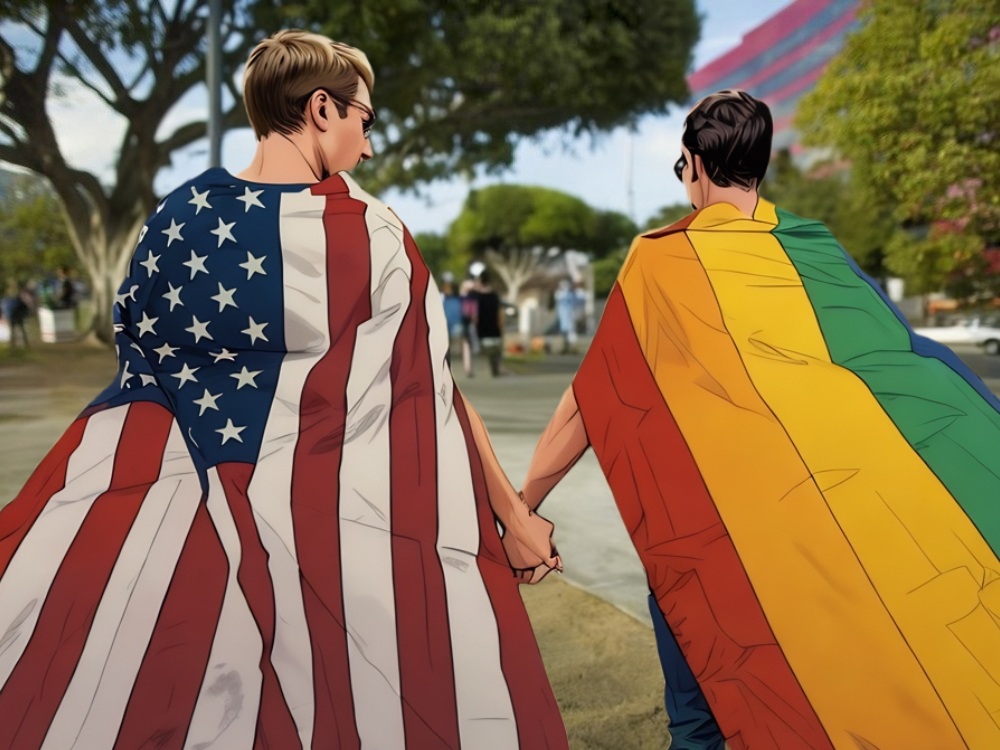Ten years after the US Supreme Court legalised same-sex marriage nationwide, the justices will soon decide whether to hear a case explicitly asking them to overturn that precedent.
Kim Davis, the former Kentucky county clerk jailed in 2015 for refusing to issue marriage licences to a gay couple, is appealing a $100,000 damages verdict plus $260,000 in legal fees. She argues her refusal was protected by the First Amendment’s guarantee of religious freedom — and that the 2015 Obergefell v Hodges decision was “egregiously wrong.”
“The mistake must be corrected,” wrote Davis’ attorney, Mathew Staver, in her petition. He labelled Justice Anthony Kennedy’s majority opinion in Obergefell “legal fiction.”
If the court accepts the case, it would be the first time since Obergefell that the justices have been directly asked to revisit and potentially overturn the ruling. Davis is considered one of the few people with legal standing to mount such a challenge.
Lower courts have rejected her defence, ruling she cannot invoke the First Amendment to avoid liability for actions taken in her official capacity. The couple she refused, David Ermold and David Moore, welcomed the verdict and expressed confidence the Supreme Court would not take up her appeal.
A Wider Push Against Marriage Equality
Davis’ challenge comes amid renewed conservative efforts to reverse marriage equality. So far in 2025, nine states have introduced bills or resolutions seeking to block marriage licences for LGBTQ+ couples or urging the court to undo Obergefell, according to Lambda Legal.
The Southern Baptist Convention has also declared overturning Obergefell a top priority, calling the ruling contrary to “God’s design for marriage and family.”
Public support for same-sex marriage remains strong — Gallup reports 70% support nationwide — but Republican support has dropped from 55% in 2021 to 41% this year.
Davis’ petition draws parallels to the court’s 2022 decision overturning Roe v Wade, citing Justice Clarence Thomas’ concurring opinion that encouraged revisiting Obergefell and other landmark privacy-rights cases.
What’s Next
The Supreme Court is expected to discuss Davis’ petition in a private conference this autumn. If they take the case, oral arguments could happen in spring 2026 with a decision by June of that year. If the court declines, the lower court ruling stands.
Legal experts doubt the justices will use Davis’ case to directly overturn Obergefell, with some suggesting they would wait for a different legal pathway to emerge.
Even if Obergefell were overturned in the future, existing marriages would remain valid under the 2022 Respect for Marriage Act, which requires all states and the federal government to recognise legal same-sex and interracial marriages.
Since Obergefell, roughly 823,000 same-sex couples have married in the US, including nearly 600,000 since the 2015 ruling. Around one in five are raising children.

































